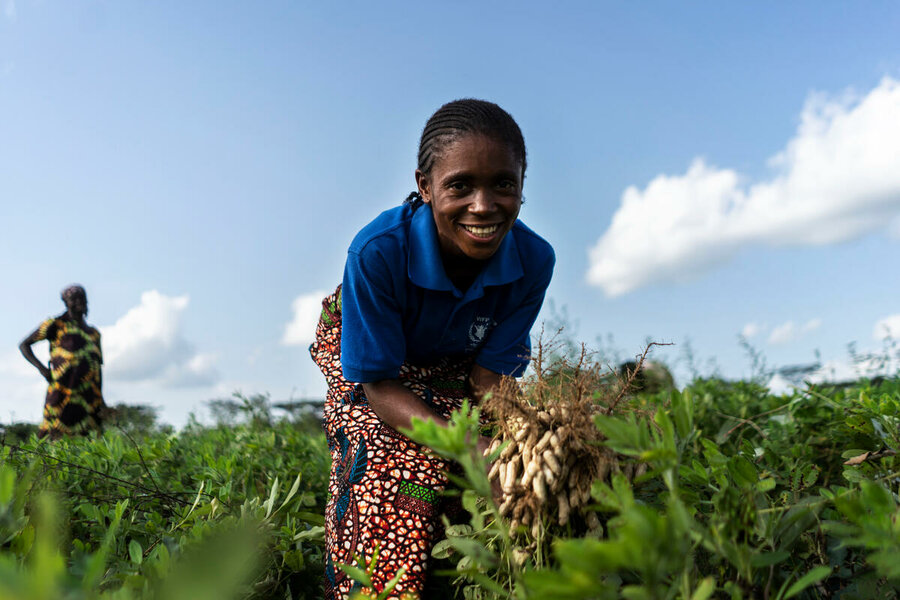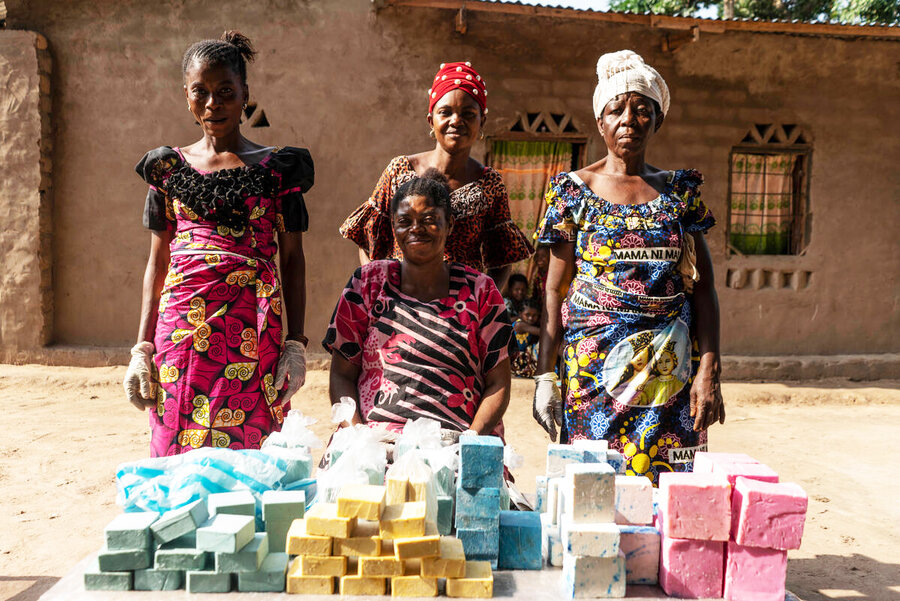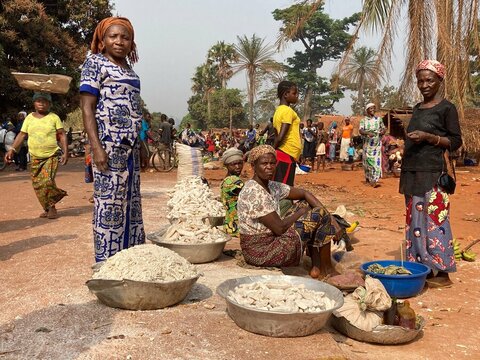Comment: Achieving long-term food security in DRC is all about building resilience
The Democratic Republic of the Congo (DRC) is one of the most fertile countries on earth, with the potential to feed all its inhabitants and even export food commodities. It is home to approximately 80 million hectares of arable land.
Rural areas account for 65 million of DRC’s population – of that figure, 65 percent are young people.
Poverty affects 72 percent of rural households. Agriculture and related services provide a livelihood to almost 75 percent of the population. However, according to the findings of the global standard for measuring food insecurity, 26 million people in DRC are currently severely food insecure making its hunger crisis Africa's biggest; globally it is second to Yemen. Hunger here is triggered by poor harvests, violence-driven displacement, disease, unemployment and collapsing infrastructure.
Despite the staggering levels of food insecurity in DRC, it has the highest agricultural potential in Africa. The country enjoys one of the world’s most favorable climates for agriculture and fertile soils and has the potential to feed over 2 billion people through suitable investments.

Climate-change-related risks and unpredictable rainy seasons have added additional pressure on people’s livelihoods, resulting in greater poverty, and food insecurity. A low standard of agricultural practice and mining are contributing to high rates of deforestation and biodiversity loss, negatively impacting natural resource-dependent communities, Indigenous groups, and women who depend heavily on the agricultural sectors.
Furthermore, 5 million children are malnourished, as well as 800,000 pregnant and breastfeeding mothers and girls. DRC continues to experience prolonged conflict and insecurity, particularly in the east of the country and the Kasai provinces, contributing to large-scale population displacements, disrupting agricultural activities – as people are forced to abandon their land – and impeding access to markets, schools, and healthcare.
The number of internally displaced people in DRC is 5.5 million, while more than 900,000 Congolese are refugees in neighbouring countries.
Currently, WFP’s resilience projects target 100,000 households, benefitting 500,000 people in Tanganyika, North Ubangi, and South Ubangi, North and South Kivu with funds provided by the governments of Sweden, Norway, Germany, and Canada.

WFP works closely with its UN sister agency, the Food and Agriculture Organization, to mitigate the negative impacts of environmental and social risks in joint resilience programmes.
Resilience and livelihoods activities include reforestation initiatives that encourage more economic empowerment for women and families. In North and South Kivu, 993 hectares were reforested and maintained by over 5,000 households.
In North and South Ubangi, 3,850 women planted tree seedlings (avocado, mango, orange, acacia, moringa, etc) to promote nutrition and more environment-friendly practices as well as preserving natural resources.
The promotion of energy-efficient cooking stoves has helped 1,500 families and contributed to reducing the consumption of charcoal as well as reducing the exposure of women who face protection risks related to collecting firewood.
There are many activities underway to help improve the long-term food insecurity issues. As part of DRC’s Ministry of Agriculture-led 15-year National Programme for Agricultural Development, WFP is partnering with the World Bank and providing support to set up a climate-risk financing mechanism to protect smallholder farmers against losses deriving from weather related shocks.
Due to their high level of poverty and isolation, DRC’s farmers are particularly vulnerable to climate impacts and other external shocks, such as droughts, floods, worm and locust invasions. WFP builds on its expertise in Climate Action through the R4 Rural Resilience Initiative, which is a flagship approach for integrated climate-risk management helping smallholder farmers to become more resilient to climate risks.
In 2021, the R4 programme reached nearly 395,000 farming households in 15 countries, and in DRC, WFP is now providing technical assistance to the Government and the insurance sector to design a sustainable agricultural index insurance scheme.
Read more: Peace takes root for refugees from CAR in DRC

Thanks to the interagency resilience programmes in DRC, community resilience and agricultural value chains are strengthened.
The project also promotes links between humanitarian action, development and peace following the triple nexus approach to improve the food security of the most vulnerable populations. WFP, FAO, UNICEF, and partners simultaneously address immediate needs and reduce longer-term needs through economic, social, technical, and financial interventions, which revitalize local economies, bolster livelihoods, and build resilience of beneficiaries against shocks and stressors.
The initiative aims to help smallholder farmers practicing family farming to move towards market-oriented agriculture, develop the capacities of small farmers to increase the quantity and quality of their production, improve transport, processing and storage conditions and market their surplus at remunerative prices and reduces gender inequalities while empowering women.
The successes are beginning to surface; 6,000 women received functional literacy training, of whom 28 percent received supplementary income-generating activities. Over 90 percent of women in the project sites report feeling their status and condition in the community have improved because of the project.
Over 88 percent of farmers organizations have access to 348 established and operational village saving and loans associations. To date, US$88,480 has been saved with US$38,685 credit granted to members in support of income- generating activities.

Through the establishment of 141 Farmer Field Schools, 90 percent of smallholder famers adopted and practiced improved agricultural practices resulting in increased agricultural productivity.
Rehabilitation of 184 km of feeder road and construction of 237 community assets (warehouses, markets, literacy centres, drainage scuppers) have augmented smallholder production, reduced post-harvest losses, and stimulated market engagement.
All these results and many more have been achieved in collaboration with the DRC Government (especially at provincial and territorial levels) and cooperating partners, including national and international NGOs.
In a country that faces a 9-month rainy season, we have a long way to go to secure food security – and as world leaders and experts sit down in Egypt this week for COP27, it is important to remember the role DRC can play in setting an example and paving the way for climate change in the future. I for one will be watching with hope.
Peter Musoko is the World Food Programme's Country Director and Representative for the Democratic Republic of Congo
At WFP, we work to support smallholder farmers, prevent malnutrition in mothers and children, while strengthening livelihoods for women and supporting youth initiatives. Our team has technical expertise in food security, adaption, and emergencies and is ever ready to support the Government of DRC and Congolese people.
